I finally remembered to come back and share photos of the Early Republic era painting which I saw at an estate sale in Del Mar earlier this summer. This school year has really thrown us all for a loop and I’m barely keeping up!
Unfortunately, I neglected to ask for the family’s name at the estate sale. It would have been great provenance. However, I was told that the items were from the family. How amazing to have family heirlooms this old! I did find a cap with the last name “Norman”, and we know from the wedding gown post that the family did live in Chicago. But otherwise, I have no history or lineage information.
I say “Early Republic“, because the painting is American. In England this would have been the Regency. Think of Jane Austen’s era.
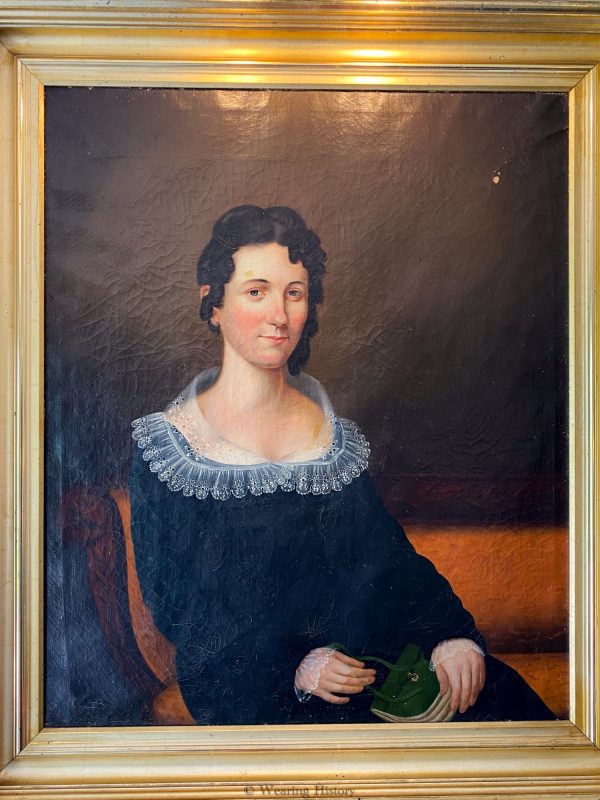
I found the most fascinating article to be the little green pocketbook on her lap. I didn’t know such an accessory existed in this form! Or perhaps it’s some sort of manuscript with pages and handles? What do you think?
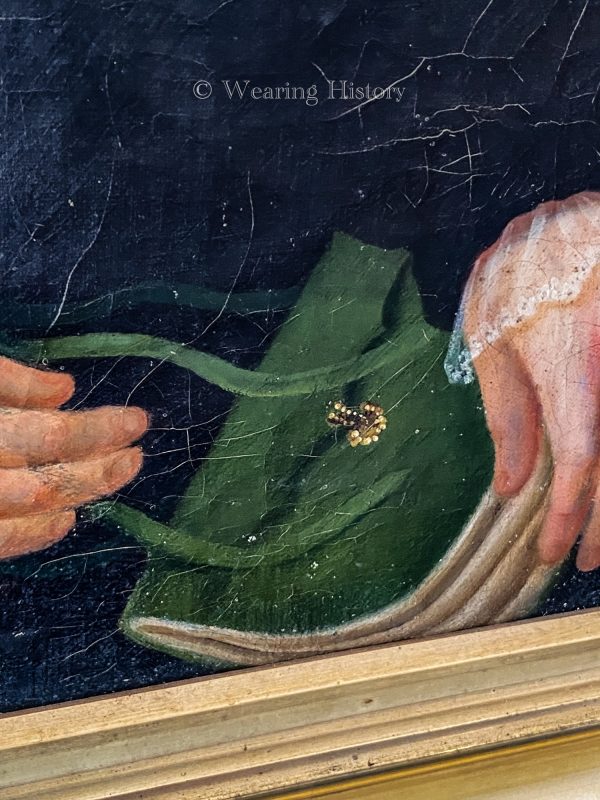
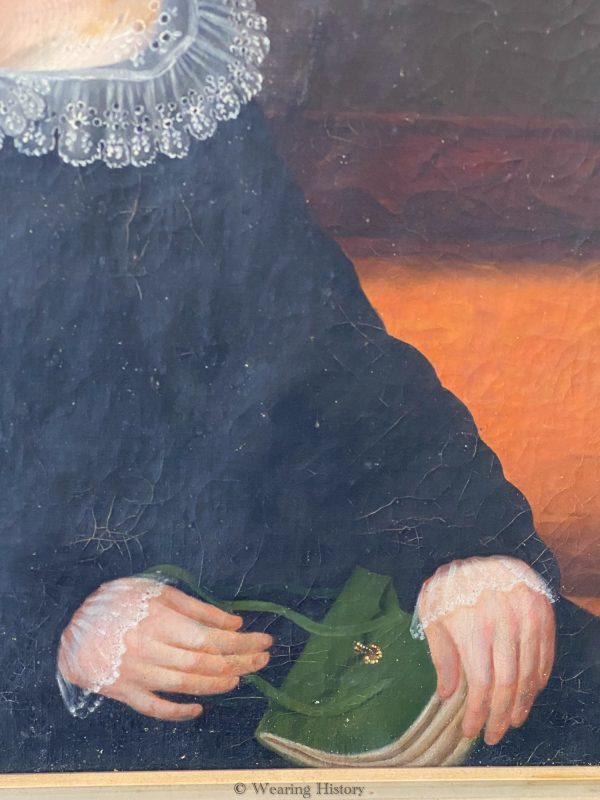
I love how the artist even illustrated the lace or embroidery of the fichu or chemisette. It reads to me like a fine cotton mull with embroidery.
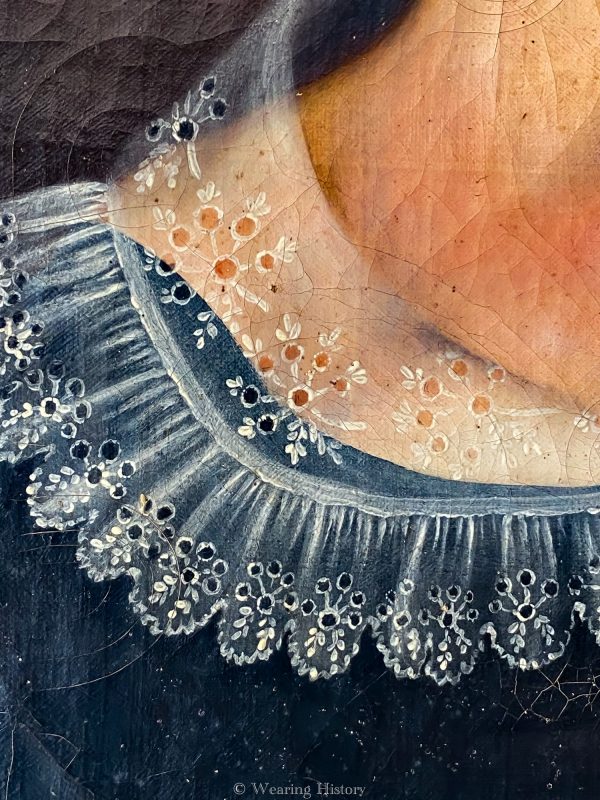
Interestingly, I picked up this cap, which I fully expected to be a child’s bonnet. Once I got it home, I realized it was actually a woman’s cap!
I’ve been meaning to retake “pretty pictures” of this for months, so I’ve finally given up and you’re getting phone photos from when I found it instead. Not bad for a $5 estate sale score.
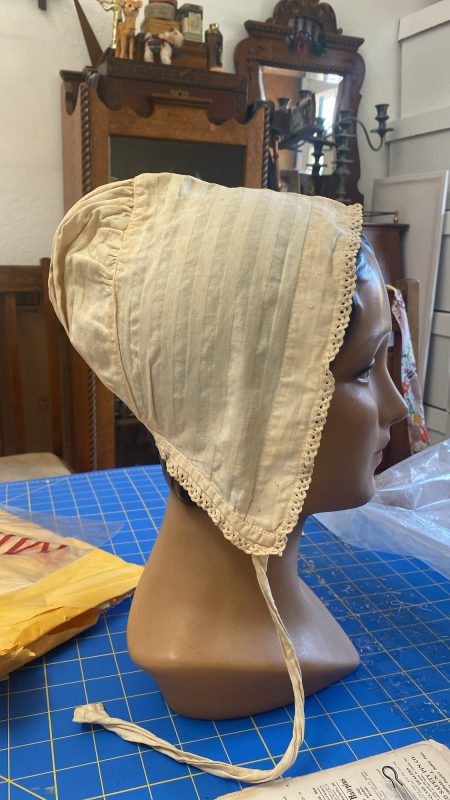
The best part is the little handwritten note that was in the box. The entire cap is hand sewn. It reads to me as 1820s-1840s. Could it have even been owned by the woman in the painting? Perhaps it’s wishful thinking, but I’m going with it.
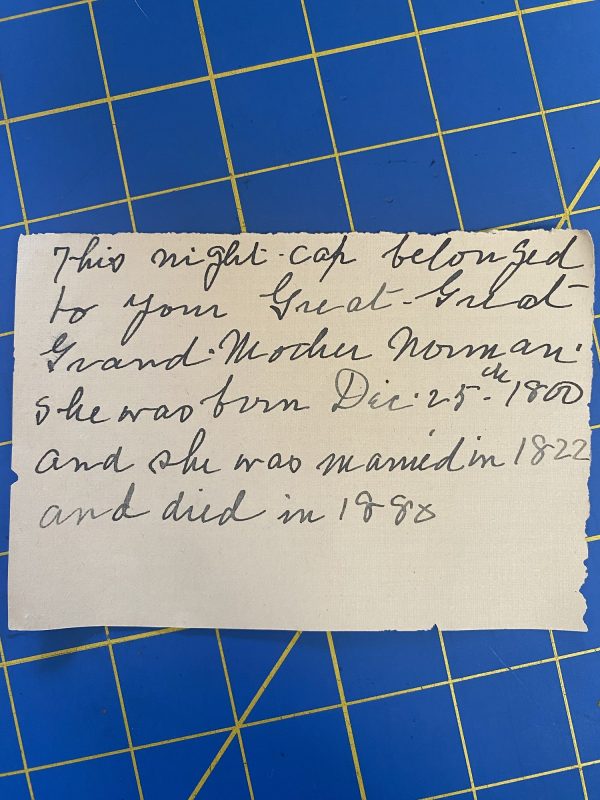
It reads “This night-cap belonged to your Great-Great-Grand Mother Norman. She was born Dec 25th 1800 and she was married in 1822 and died in 1880.” The era is right to coincide with the painting!

“Perhaps you have never heard that there was a year without a summer but when I was a little girl my Grandmother told me that in 1816 it was so cold that her Father had to do his ploughing with his overcoat on- Granny”
Fascinatingly, there was actually a year that was called “The Year Without a Summer”, and it was 1816. Here’s an article on Wikipedia, and another from the National Park Service. It was started by a volcanic eruption of Mount Tambora in Indonesia. We don’t think about how volcanic activity can affect the entire planet, but gardeners around the world this year (2024) are remarking how bad their crops are. In our own garden, all the normal homegrown veggies and fruit are behaving differently- and garden groups we follow in other countries are saying the same thing. Environmentalists are saying that volcanic eruptions are impacting our global weather. So this is a fascinating family legend that coincides with actual historical events!

Nicole
September 23, 2024 at 10:58 am (9 months ago)This information about the volcanic eruption changing the weather patterns is the most interesting thing I have read all year! Last winter was extremely and abnormally mild for us- we didn’t get snow until January which is unheard of for Alberta, and we had a very cold and wet spring. Our garden is just ripening now and we were wondering what was different. So interesting to find out that it’s a global phenomenon.
Also, interesting to find that this era in the US was called Republic. I’ve always kind of wondered because “Regency” is a monarchist name. That must have been an amazing estate sale to go to if they had pieces that old!